Search Results
Showing results 201 to 220 of 351
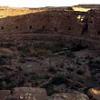
Seasons and Shadows: Investigate How Shadows Shift Throughout the Year
Source Institutions
In this activity you'll see how the sun's tilt on its axis changes the length of shadows. For example, why is your shadow longer in winter than in summer?

Jump to Jupiter
Source Institutions
In this activity, learners help create and then navigate an outdoor course of the traditional "planets" (including dwarf planet Pluto), which are represented by small common objects.
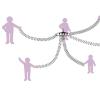
Exploring the Solar System: Moonquakes
Source Institutions
In this activity, learners sort different natural phenomena into categories (they occur on Earth, on the Moon, or on both), and then model how energy moves during a quake using spring toys.
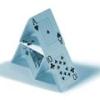
Critical Load
Source Institutions
In this activity, learners explore the concepts of structural engineering and how to measure the critical load, or the maximum weight a structure can bear.

Pulse of Life: Measure Your Pulse
Source Institutions
In this activity, learners take their own pulse and explore how heart rate is affected by various activities.
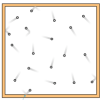
What Causes Pressure?
Source Institutions
In this kinesthetic activity that demonstrates pressure, learners act as air molecules in a "container" as defined by a rope.
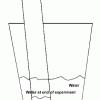
Percentage of Oxygen in the Air
Source Institutions
In this activity, learners calculate the percentage of oxygen in the atmosphere by using steel wool's ability to rust.
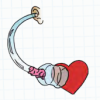
Heart to Heart
Source Institutions
In this activity, learners compare ways to measure their heart rates. Learners build their own stethoscopes and learn how exercise affects heart rate.
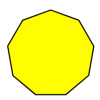
Geometry and Spatial Relations: Mirror, Mirror
Source Institutions
In this math lesson, learners use hinged mirrors to discover that regular polygons are composed of triangles tessellating around a center point.
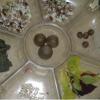
Glove Gardens
Source Institutions
In this activity, learners create a garden in a disposable glove. They learn about the conditions necessary to make the seeds sprout and actively participate in caring for their plants.

Smelly Balloons
Source Institutions
In this activity, learners sniff out scents hidden in balloons! After investigating, learners discover we sometimes can use another sense (smell) to detect things too small to see.
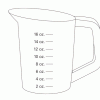
Using Food Labels
Source Institutions
In this nutrition activity, learners explore food labels and consider the nutritional value of foods. Learners also explore units of measurement commonly used on food labels.
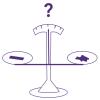
Chew that Gum
Source Institutions
In this quick activity (page 1 of PDF under SciGirls Activity: Exercise and Memory), learners will investigate what happens to bubble gum when it is chewed for 5-10 minutes.

Relative Speed of Dinosaurs
Source Institutions
In this activity, learners interpret three trackways and use measurements and a formula to infer the relative speed of dinosaurs.
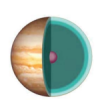
Jiggly Jupiter
Source Institutions
In this activity, learners build edible models of Jupiter and Earth to compare their sizes and illustrate the planets' internal layers.

Mold Mole Molds
Source Institutions
In this activity, learners make different shapes that hold exactly one mole of gas (air).
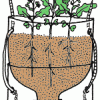
TerrAqua Investigation Column: What is the Land-Water Connection?
Source Institutions
In this investigation, learners plant seeds in a 2-liter bottle filled with soil that is connected to a water source below. Over the next few weeks, learners observe how the plants grow.
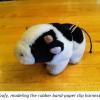
Zip Line Zoo
Source Institutions
In this activity, learners build a stuffed-animal zip line. Learners hold a cord against a wall, hook a cute stuffed animal onto it, let the animal slide down, and records its travel time.

Rollin’ Rollin' Rollin'
Source Institutions
In this physics activity (page 12 of the PDF), learners explore potential and kinetic energy by rolling different sized marbles down an inclined plane.
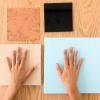
Cold Metal
Source Institutions
In this activity, learners discover that our hands are not reliable thermometers.
